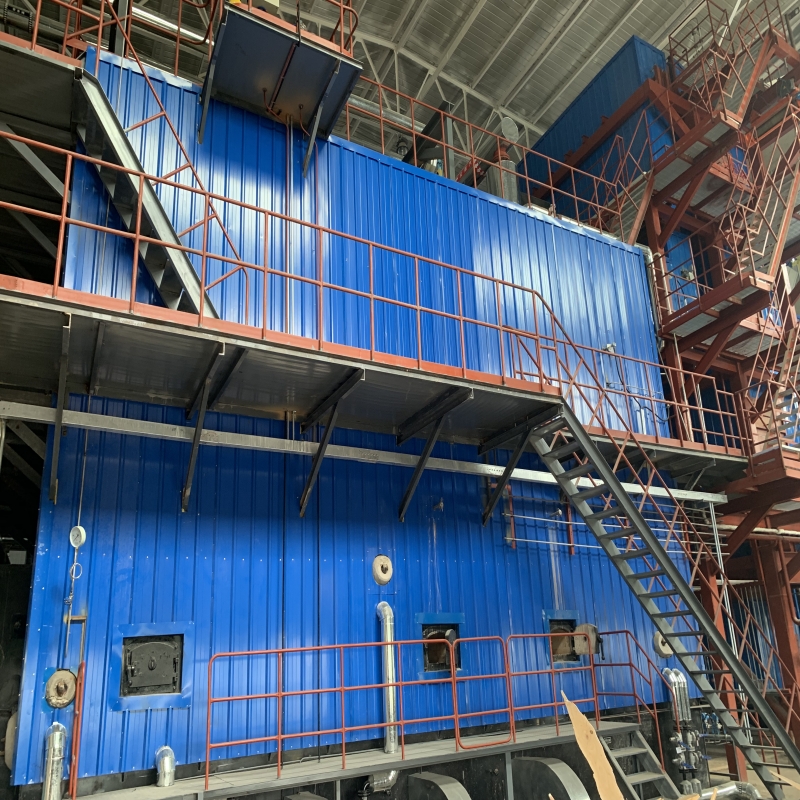
ທ.ວ. . 12, 2024 00:25 Back to list
thermal oil boiler working principle
Understanding the Working Principle of Thermal Oil Boilers
Thermal oil boilers are a crucial component in many industrial processes, particularly where high-temperature heat transfer is necessary. Unlike traditional water-based boilers, thermal oil boilers utilize a thermal oil as a heat transfer medium. This unique approach offers several advantages, including high thermal efficiency, enhanced temperature control, and reduced risks of corrosion and scaling. In this article, we will explore the working principle of thermal oil boilers, their key components, and their applications.
The Basic Principle
The primary working principle of a thermal oil boiler involves heating a specially formulated thermal oil to a high temperature, which is then circulated through a heat exchanger to transfer the thermal energy to the end-user processes. This method effectively separates the heating medium from direct water usage, allowing for higher operational temperatures without pressure.
Key Components
1. Thermal Oil This is the core medium used for heat transfer in thermal oil boilers. Common options include synthetic fluids designed to operate at high temperatures without degrading. These oils have excellent thermal stability and low vapor pressures.
2. Burner The burner is responsible for generating heat. It can operate on various fuels, including natural gas, oil, or biomass. The combustion process heats the thermal oil circulating through the boiler.
3. Heat Exchanger This component transfers the heat from the heated oil to the required process or utility application. Heat exchangers come in various designs, including shell-and-tube, plate, and finned-tube configurations.
4. Pump A pump circulates the thermal oil through the system, ensuring consistent flow and uniform heat distribution.
5. Expansion Tank As the thermal oil is heated, it expands. The expansion tank accommodates this increase in volume, preventing excess pressure buildup in the system.
6. Control System A control system monitors and manages the various parameters, such as temperature, pressure, and flow rate, ensuring optimal operation. It may include safety features to shut down the system in case of any anomalies.
The Working Cycle
thermal oil boiler working principle

The operational cycle of a thermal oil boiler begins with the burner igniting the fuel, generating combustion gases that pass through a heat exchanger, transferring heat to the thermal oil. The oil is then heated to temperatures typically ranging from 300°C to 400°C (572°F to 752°F), depending on the specific application.
Once heated, the thermal oil is pumped through the system to the heat exchangers where it transfers its temperature to the desired application—be it an industrial process, a drying facility, or space heating. As the oil loses heat, it returns to the boiler to be reheated, and the cycle continues.
Advantages of Thermal Oil Boilers
1. High Efficiency Thermal oil systems can achieve higher efficiency levels than traditional water-based boilers due to the higher thermal stability of oil, allowing for effective heat transfer and less energy loss.
2. Versatile Temperature Control The ability to operate at high temperatures without the risk of boiling makes thermal oil boilers an attractive option for industries requiring precise temperature control.
3. Reduced Corrosion Risks Thermal oil is less prone to corrosion compared to water, which can contain minerals and oxygen that lead to rust and scaling.
4. Compact Design Thermal oil systems typically require less space than conventional steam boilers, making them ideal for facilities with limited installation areas.
5. Environmentally Friendly Options Many thermal oil boilers can use renewable energy sources, such as biomass, contributing to lower greenhouse gas emissions.
Applications
Thermal oil boilers are commonly used in various industries, including
- Chemical Processing For reactions that require precise temperature control. - Food and Beverage Industry In processes like frying, drying, and cooking. - Textile Processing For dyeing and finishing fabrics. - Plastics Manufacturing For maintaining process temperatures in molding processes.
In conclusion, thermal oil boilers represent a modern, efficient, and versatile approach to industrial heating. Their ability to provide high-temperature heat transfer while minimizing risks makes them essential in many sectors, from chemical manufacturing to food processing. Understanding their working principle allows industries to make informed choices about heating solutions that optimize processes, enhance productivity, and drive sustainability.
-
Commercial Steam Boilers for Sale - AI Optimized Efficiency
NewsAug.02,2025
-
Efficient Biomass Fired Hot Water Boiler | AI Heating Solution
NewsAug.01,2025
-
High-Efficiency Gas Thermal Oil Boilers | HPT Models
NewsJul.31,2025
-
Oil Fired Hot Water Boilers Sale - High Efficiency & Affordable
NewsJul.31,2025
-
High-Efficiency Commercial Oil Fired Steam Boiler for Industry
NewsJul.30,2025
-
High-Efficiency Biomass Fired Thermal Oil Boiler Solutions
NewsJul.30,2025
Related PRODUCTS






















